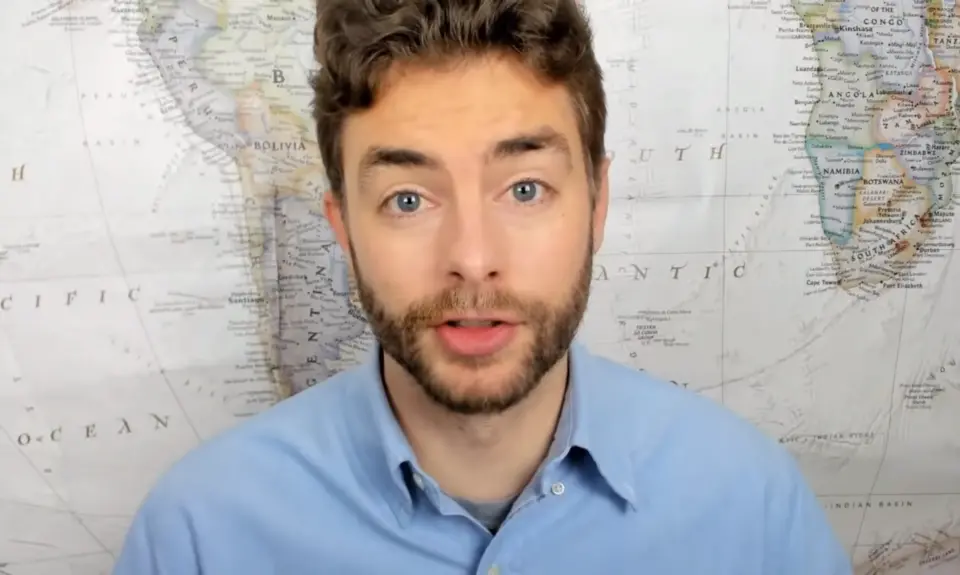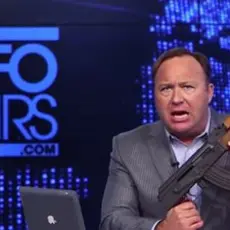Paul Joseph Watson, editor-at-large for the conspiracy theory website Infowars, said in a recently released court deposition that Infowars covered the 2012 Sandy Hook Elementary School mass shooting in ways that were not “decent and right” to the grieving families, HuffPost first reported. Watson said that he had voiced his objections about Infowars’ coverage to the outlet’s managers and its founder Alex Jones, but it did not result in changes at the site.
">Nov. 27 deposition for the ongoing lawsuit Neil Heslin v. Alex Jones, attorney Mark Bankston, who works for the Houston-based law firm representing several Sandy Hook parents seeking damages from Jones and Infowars, questioned Watson about the outlet’s claims that the Sandy Hook shooting was a “false flag” event in which children were not killed. Infowars also promoted conspiracy theorists who had contributed to the harassment of families of the slain children. As a result of the harassment, some parents can no longer visit the gravesites of their killed children and have been forced to move repeatedly.
Watson, a longtime protégé of Jones, said that Infowars did not always adhere to what was “decent and right” regarding its coverage of the Sandy Hook shootings and added that Infowars’ coverage of Sandy Hook “generally speaking” was not carried out with respect, dignity, and sensitivity for the victims of the tragedy. Bankston asked Watson about an email he sent to Infowars managers in 2015 voicing his concern about the outlet’s coverage of the Sandy Hook shooting. Watson said he had also voiced those concerns to Jones.
“This Sandy Hook stuff is killing us. It’s promoted by the most batshit crazy people like [Jeff] Rense and [James] Fetzer who all hate us anyway. Plus it makes us look really bad to align with people who harass the parents of dead kids,” Watson wrote in the email. “It’s gonna hurt us with Drudge and bringing bigger names into the show. Plus the event happened 3 years ago, why even risk our reputation for it?”
Rense and Fetzer both claimed that the Sandy Hook shooting was faked and that nobody died during the tragedy. Watson, who is a conspiracy theorist himself, said he did not believe that Rense and Fetzer were credible.
Watson later testified that Jones did not heed his warning.
Bankston: Mr. Jones didn't listen to you, correct, on this topic?
Watson: Whether he toned it down, I couldn't say, but, I mean, if you want to say he didn't -- he didn't listen to me in that instance, you could convey that argument, yes.
Later in the deposition, Watson said he was not proud of Infowars’ Sandy Hook coverage and that he “disagreed with it from the start.” When Bankston asked Watson whether he would agree that Infowars staff did not approach their Sandy Hook coverage with the “extreme caution” that Watson said it should have been treated with, Watson answered affirmatively.
“I would say, no, they didn't treat it with extreme caution but such statements would be protected under the First Amendment,” Watson answered. Later in the deposition, Bankston pressed Watson on his belief that the First Amendment protected Jones and Infowars’ statements about Sandy Hook. Watson, in turn, characterized Jones as an “opinion commentator” who doesn’t abide by journalistic ethics “because he’s not a journalist.”
At another time, Bankston asked Watson about Jones’ history of claiming that major mass tragedies were “false flag” conspiracies.
Bankston: I want to talk a little bit about Alex Jones and what he thinks is a false flag. So you're aware Alex Jones has said 911 is a false flag, right?
Watson: I'm aware that he said that, yes.
Bankston: You're aware that he said Columbine was a false flag?
Watson: Yeah.
Bankston: You're aware that he said Oklahoma City was a false flag?
Watson: Yeah.
Bankston: You're aware he said the Aurora shooting was a false flag.
Watson: Yeah.
Bankston: You're aware that he said the shooting of Gabrielle Giffords was a staged, mind-control operation, correct?
Watson: Yeah.
Bankston: He said the Boston bombing was a false flag.
Watson: Correct.
Bankston: He said there were -- there were tweets on -- from Infowars on Twitter saying that the Douglas High School shooting in Parkland, Florida was a false flag, correct?
Watson: I don't know about the specific term, but yes. Generally speaking, yes.
Bankston: The November 2017 church shooting in Sutherland Springs, Texas, Mr. Jones said that was a false flag.
Watson: I don't recall him saying that, but I presume it's possible, yes.
Bankston: The Las Vegas mass shooting, Mr. Jones said was a false flag.
Watson: Yes.
Bankston: Can you give me an example of a US mass casualty event, like a mass shooting, a bombing, or the like that Mr. Jones didn't say was a false flag?
Watson: I would say that the most recent ones post Las Vegas massacre, maybe the debates in Ohio shooting, the El Paso shooting. Again, I don't know for sure, but I think after the Las Vegas one, he was more reticent to call them false flags.
Bankston: After I sued him, right?
“Time is running out for Mr. Jones,” Bankston said in a statement reported by HuffPost. “The day is fast approaching when he will be held accountable for his monstrously reckless lies about our clients.”






